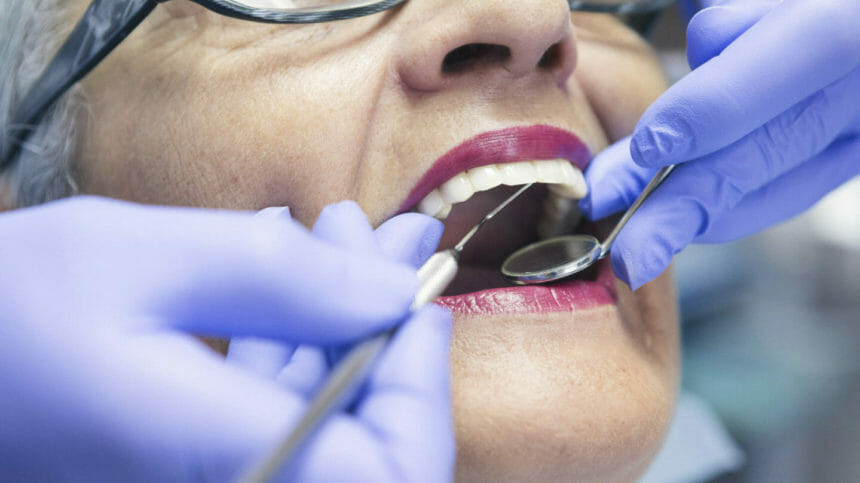
Oral health has effects on the mental well-being of older adults, but not directly, according to a new report.
Maintaining oral health can lower the risk for several diseases, which is why it may be a beneficial priority for older adults who tend to be more prone to illness. But the researchers weren’t sure whether oral health was linked to psychological health until a team led by Noriko Takeuchi, PhD, a senior assistant professor at Okayama University Hospital in Japan, conducted a trial. The report was published in PLOS ONE on Nov. 28.
The team conducted oral exams on 218 people who were aged more than 60 years (the mean age was 75). Exams included looking at how much bacteria was on their tongues, how well they could chew and swallow, and more marks of good oral health such as how many teeth (and functional teeth) they had. The investigators recorded information on individuals’ nutritional habits as well as medical history and social connectedness.
The findings showed that oral health didn’t have a direct effect on positive well-being, but it is related to nutritional status, which in turn, is tied to the subjective well-being among older adults. (Previous studies have found a positive association between eating well and positive well-being.) An older adult’s oral health plays a critical role in determining the types of food that a person can eat, which can affect their overall health.
“Maintaining good oral health can help improve nutritional status, which in turn, can improve subjective psychological well-being,” Takeuchi said in a statement.
“The results of this study revealed that oral condition was not directly associated with well-being, but was associated with nutritional status, and that nutritional status was associated with well-being,” the authors wrote.
A study that was published Jan. 26 in Alzheimer’s & Dementia loosely linked periodontitis to the risk for Alzheimer’s disease and related dementias.





